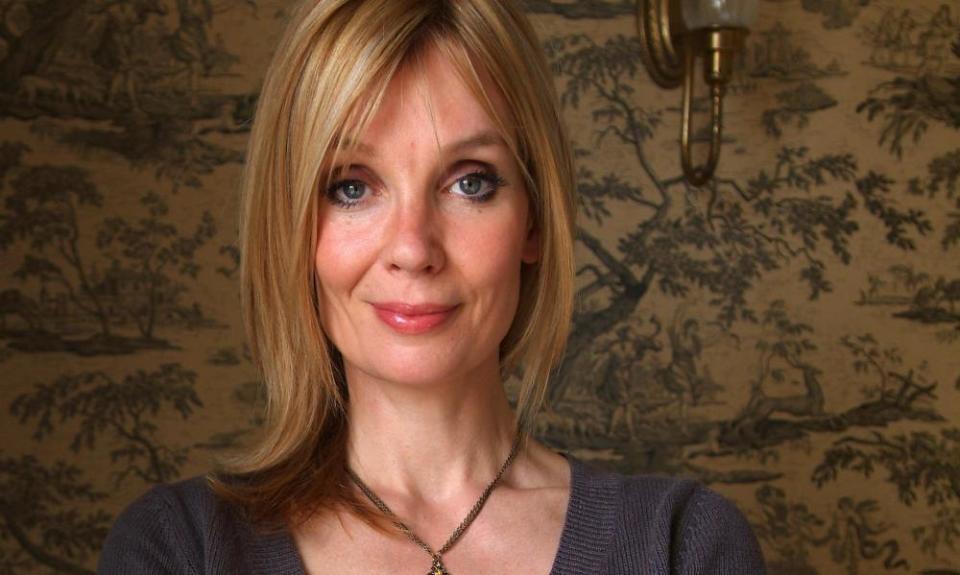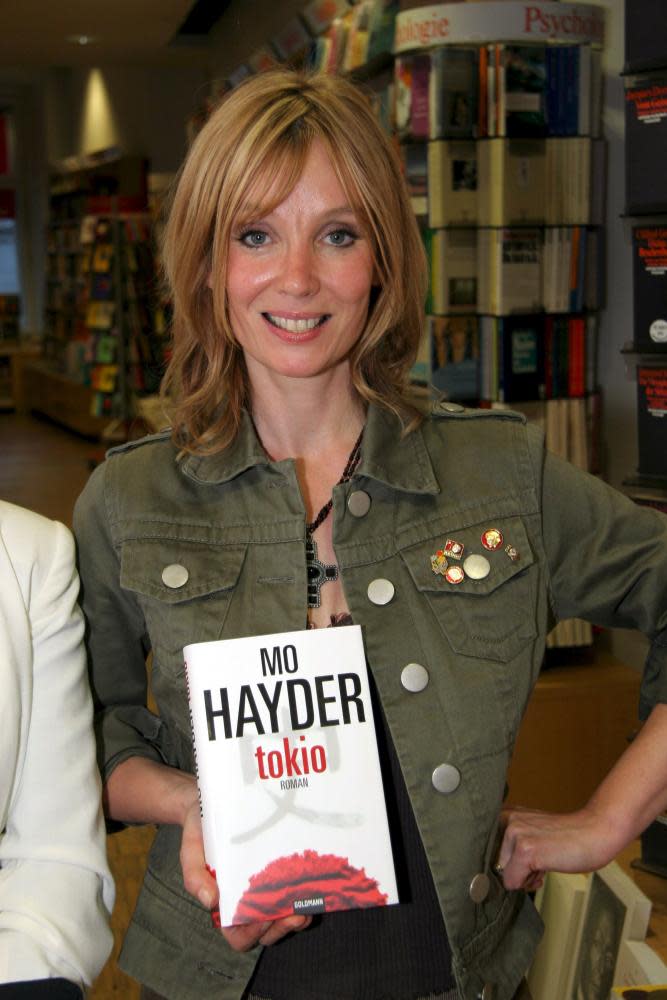Mo Hayder obituary

In her mid-20s, while working as a hostess in a Tokyo nightclub, the author Mo Hayder, who has died aged 59, saw the lives of three strangers snuffed out in quick succession. A heart attack in a coffee bar; a workman falling to his death; a snakebite.
These close-up brushes with mortality, shortly after the murder of one friend and the brutal rape of another, sparked a fascination with death and with violence against women that would last a lifetime. Later, while working as a film-maker, Mo produced an animated short in which a cute Claymation couple went to bed together before the woman pulled the man’s head off, ate it and lobbed the skull out of the window. The film won an award, but the local TV station refused to show it, on the grounds that they did not agree with cannibalism.
It was a sign of things to come.
Mo was born Beatrice Clare Bastin (a surname later changed by deed poll to Dunkel), the daughter of John Bastin, an astrophysicist, and Susan Hollins, a teacher. She grew up in Essex and the US, and left school at 15. A rebellious streak resulted in an early arrest for fighting – of which she was inordinately proud – and a self-confessed “wild child” phase. Following the failure of a brief marriage and after working as a barmaid, a security guard and making films in the US, she exploded on to the crime fiction scene with her first novel, Birdman, in 2000.
She later claimed that the novel had been written to exorcise her dark obsessions, but it only clarified what she called a “compulsive need to wriggle my toes in life’s gutters”. The graphic descriptions of violence and its aftermath were not to everyone’s taste, especially those who preferred their fictional murders to happen off-stage and their sleuth to be the sort who gathered suspects together in a drawing room, but the novel was an instant bestseller and earned Mo and her troubled detective Jack Caffery legions of fans.
Writers of “popular” fiction, especially those selling millions of copies, are normally expected to deliver a book a year, but Mo rarely did what people, or publishers, expected. After her hugely disturbing second novel, The Treatment (2001), Mo took three years to deliver what many, myself included, consider her masterpiece. Tokyo – since retitled The Devil of Nanking – uses the infamous Nanjing massacre of 1937 as a starting point for an all-too modern thriller and, while being a book that, arguably, confronts and addresses the author’s own past, is also the one that most clearly demonstrates her almost Jacobean fixation with “the skull beneath the skin”; with death as the ever-present shadow-sibling of life. It is a novel that, once read, is simply impossible to forget.

Mo also refused to play the game when it came to the personal appearances and book festival dog-and-pony shows that have become part and parcel of a writer’s life. She had done what was expected early on, including a public launch, shortly before her debut was released, when her indomitable agent Jane Gregory introduced her to the crime-fiction community during a festival in Manchester.
Though Mo’s model looks certainly got attention back then, I doubt that many could have imagined the transgressive and unsettling fiction she would go on to produce and, from that point on, sightings of her in the flesh were few and far between. For reasons I can’t quite remember, I was often the person tasked with trying to persuade Mo to attend this, or that festival, in the UK or overseas. She would laugh at the fact that I had become her unofficial “wrangler” and, typically self-deprecating, ask why anyone would want her to show up, before politely declining.
She would joke that she was just anti-social, but the simple truth was that she was very shy and suffered from crippling stage fright. When she did make an appearance, though she was far from being an extrovert, she was always charming and vivacious and held her audience spellbound.
I remember one occasion when, feeling rather like someone trying to talk BA Baracus into getting on a plane, I persuaded her to attend the World Mystery Convention in Baltimore where, predictably, she was the star of the show. Most of the time, however, she was content to let her books speak for her and preferred to spend time with her family. By the time I heard of her death, neither myself nor any other writer I know had seen her for many years.
Mo was diagnosed with motor neurone disease in December 2020. The condition was as horribly swift and merciless as any killer she ever created.
She is survived by her second husband, Bob Graham, a diver, whom she married earlier this year, and her daughter, Lotte, and by her mother, and brother, Richard.
We are left with her books of course; 10 unutterably dark and riveting crime novels. As a writer she was unique and fearless, with that rare ability to nudge a reader’s imagination into places that were genuinely terrifying and to conjure images that would linger and continue to disturb, like fragments of a nightmare.
I understand that there are two more books to come, starting with The Book of Sand, written under yet another identity – Theo Clare.
They are not enough.
• Mo Hayder (Beatrice Clare Dunkel), crime writer, born 2 January 1962; died 27 July 2021

 Yahoo Finance
Yahoo Finance 